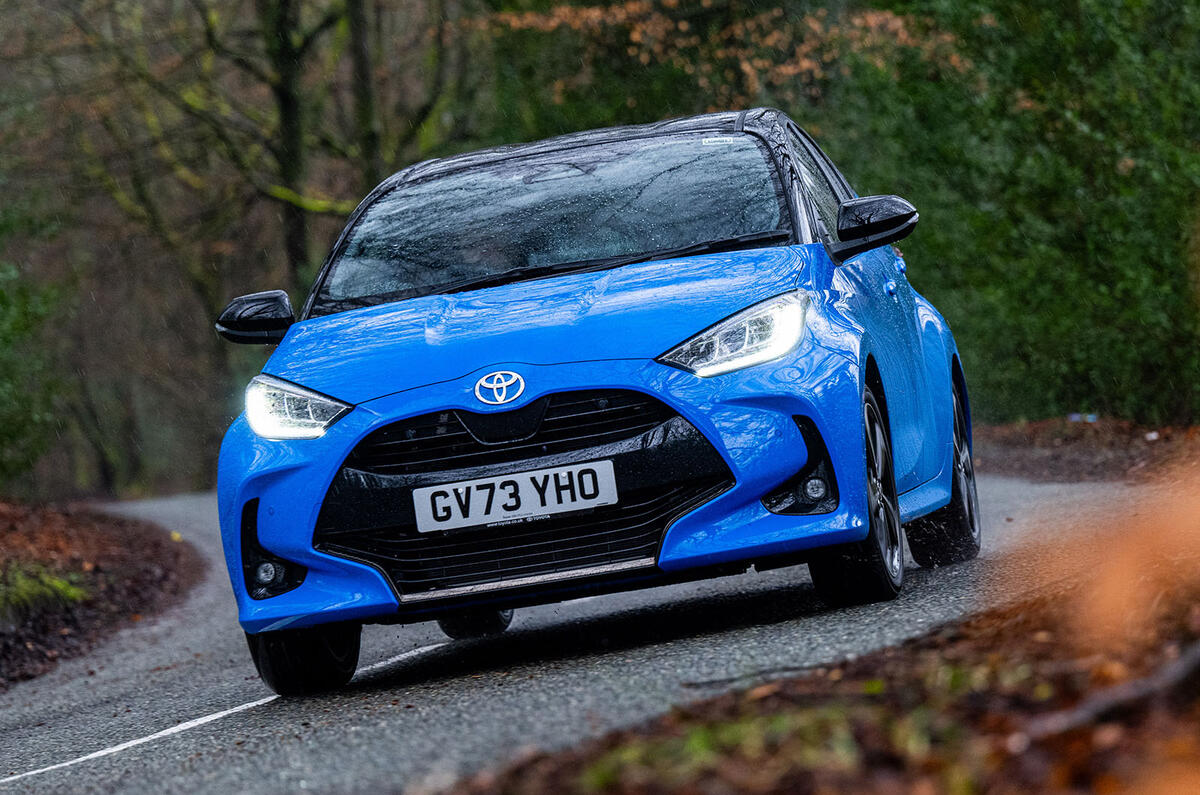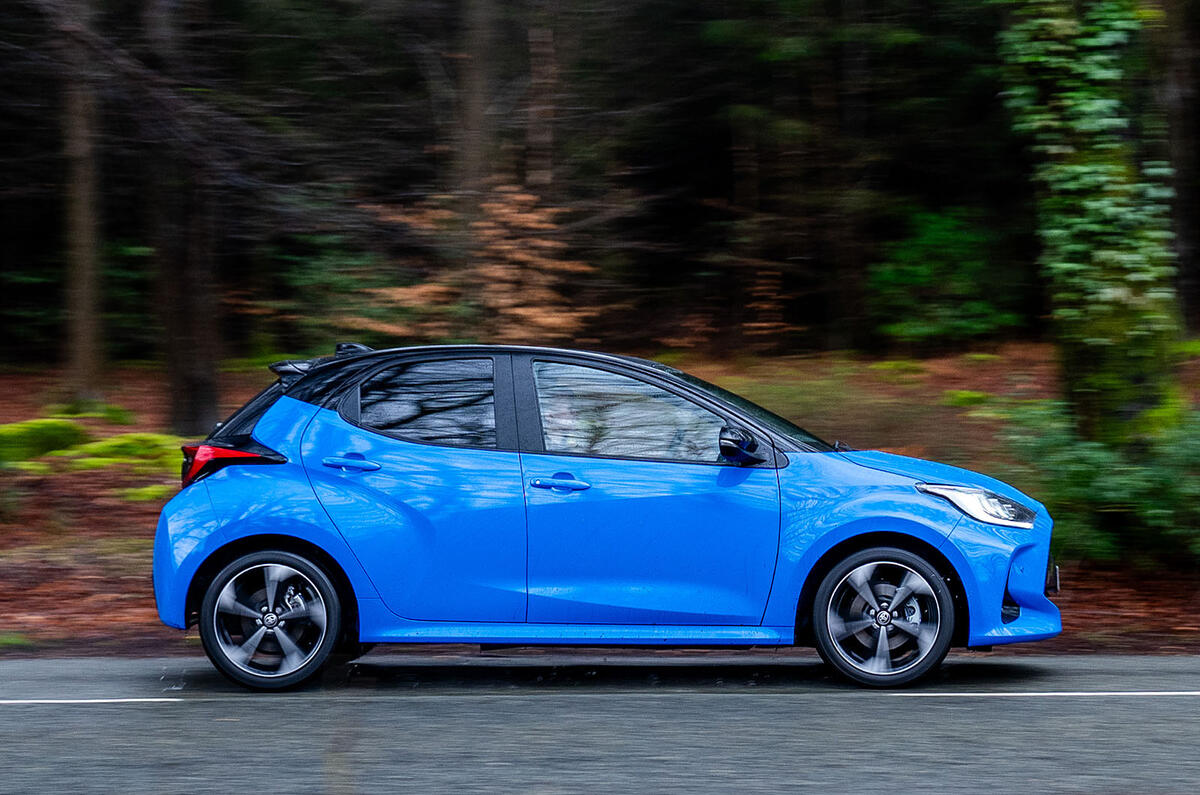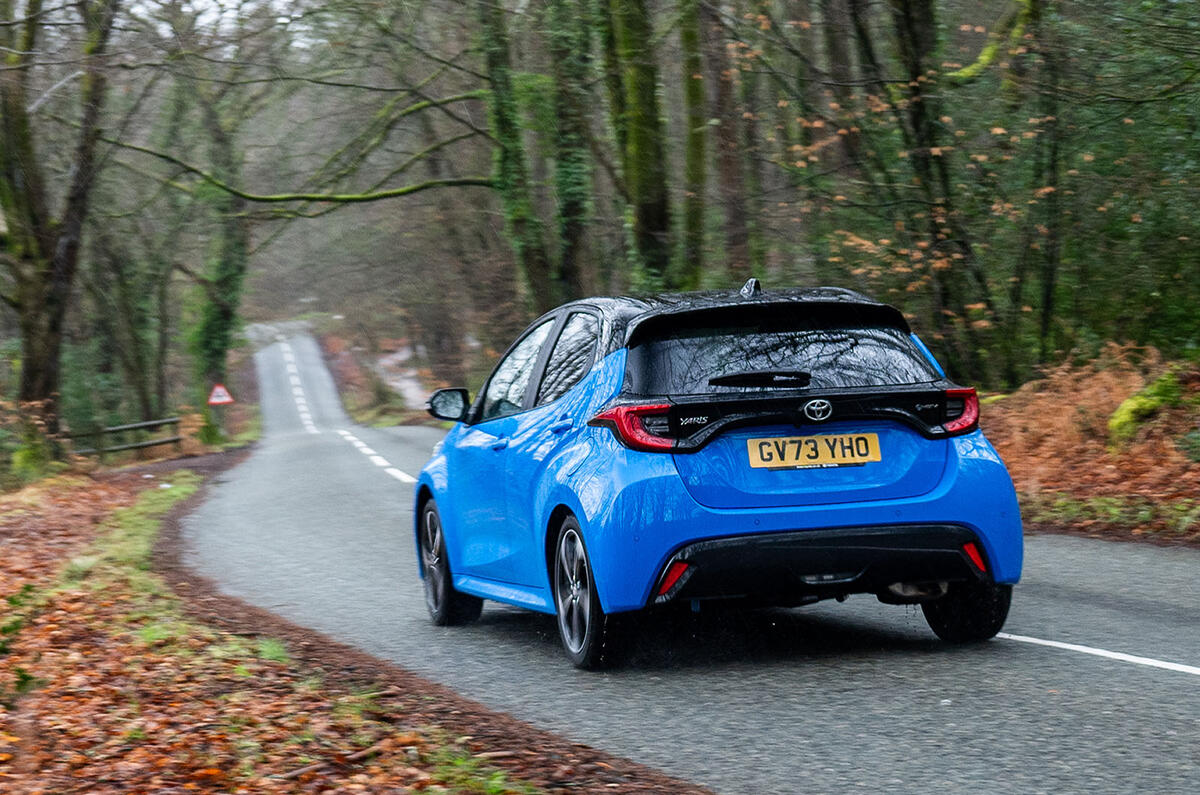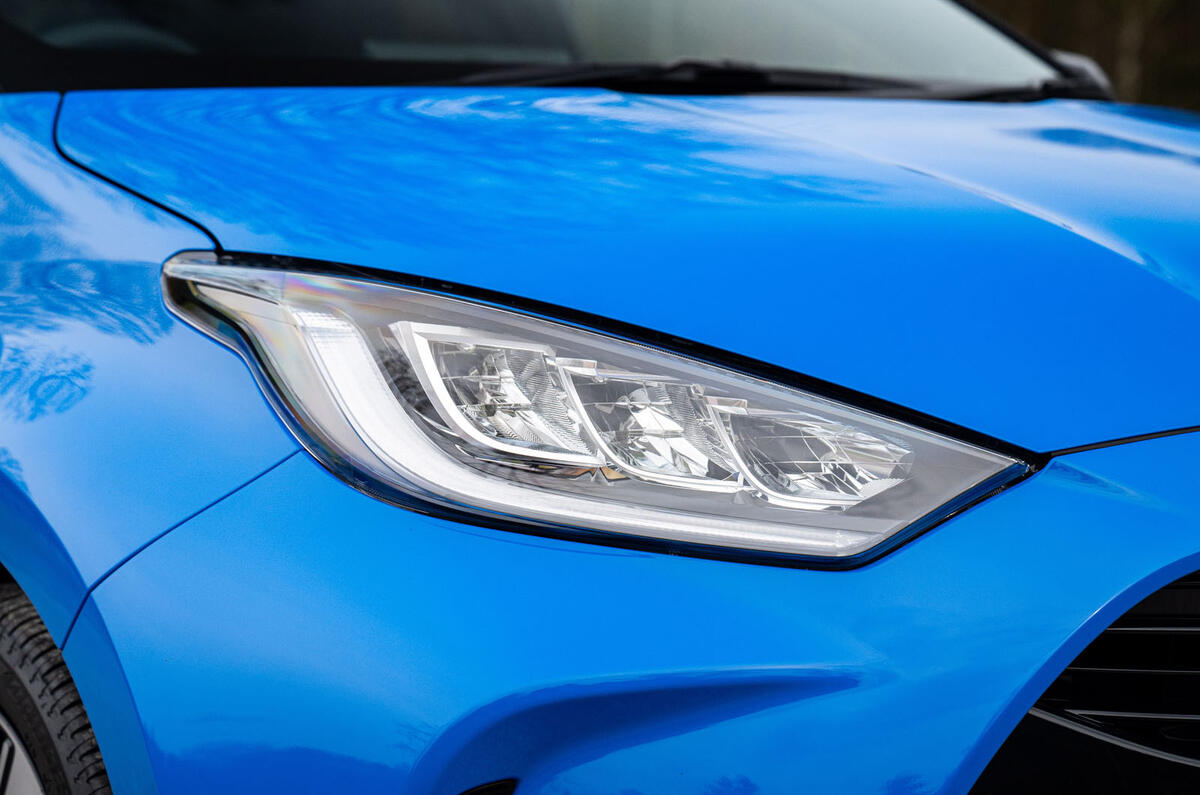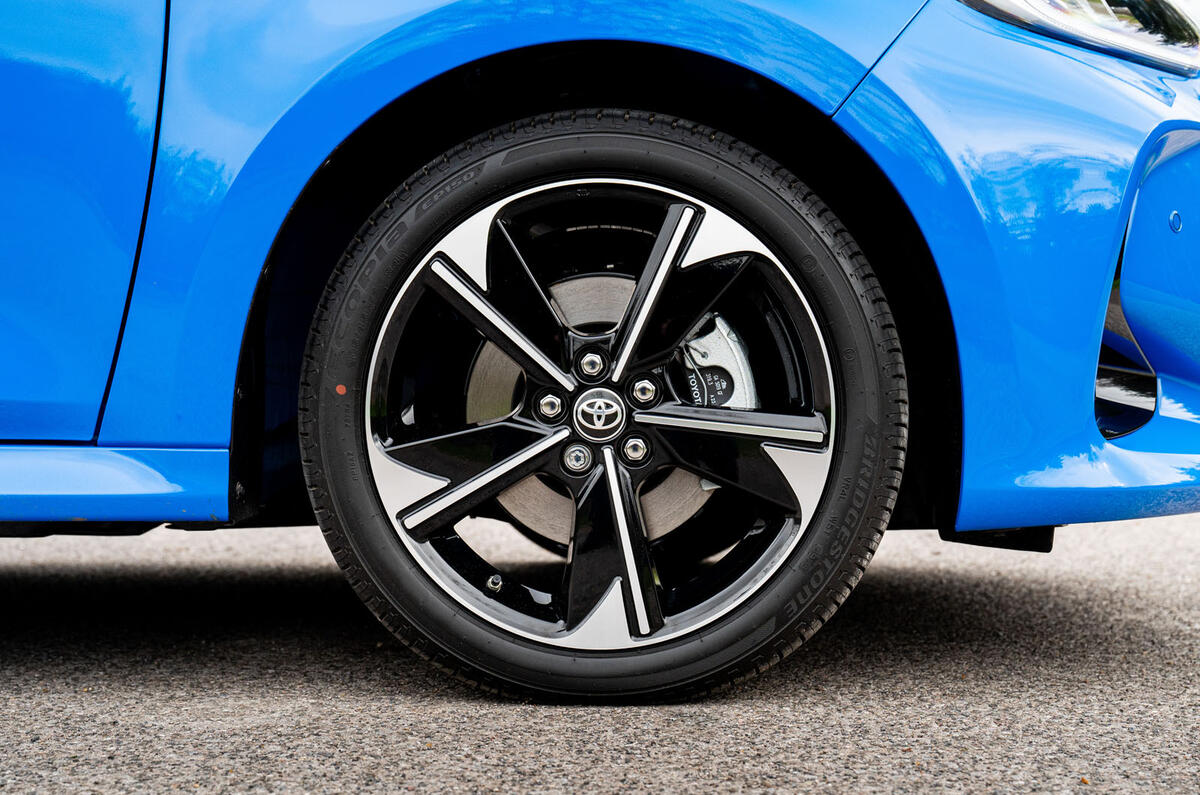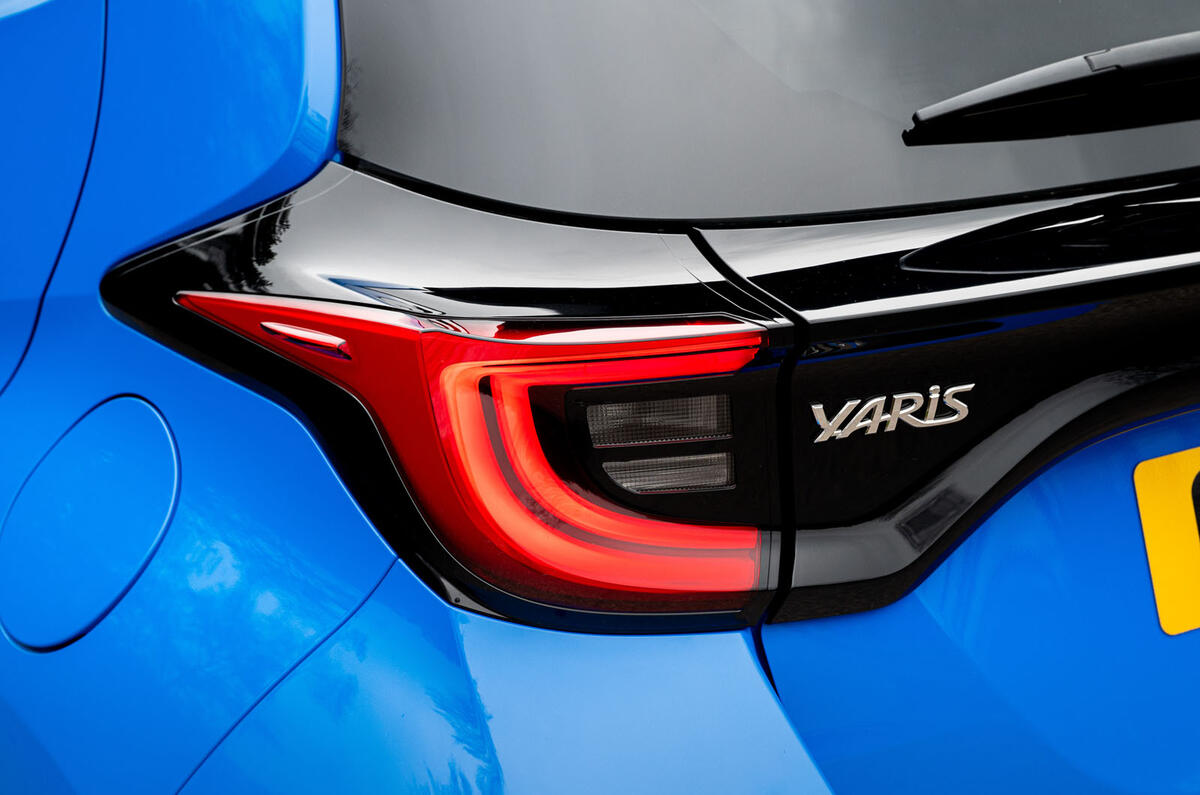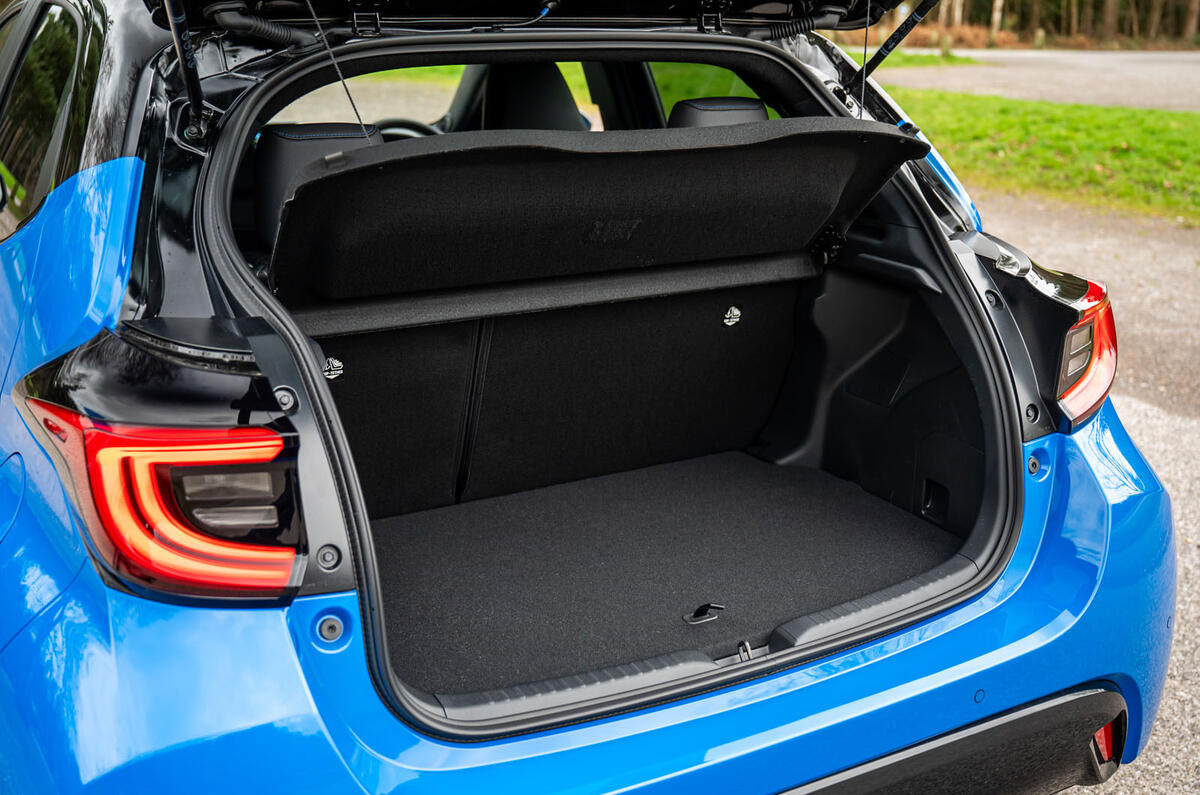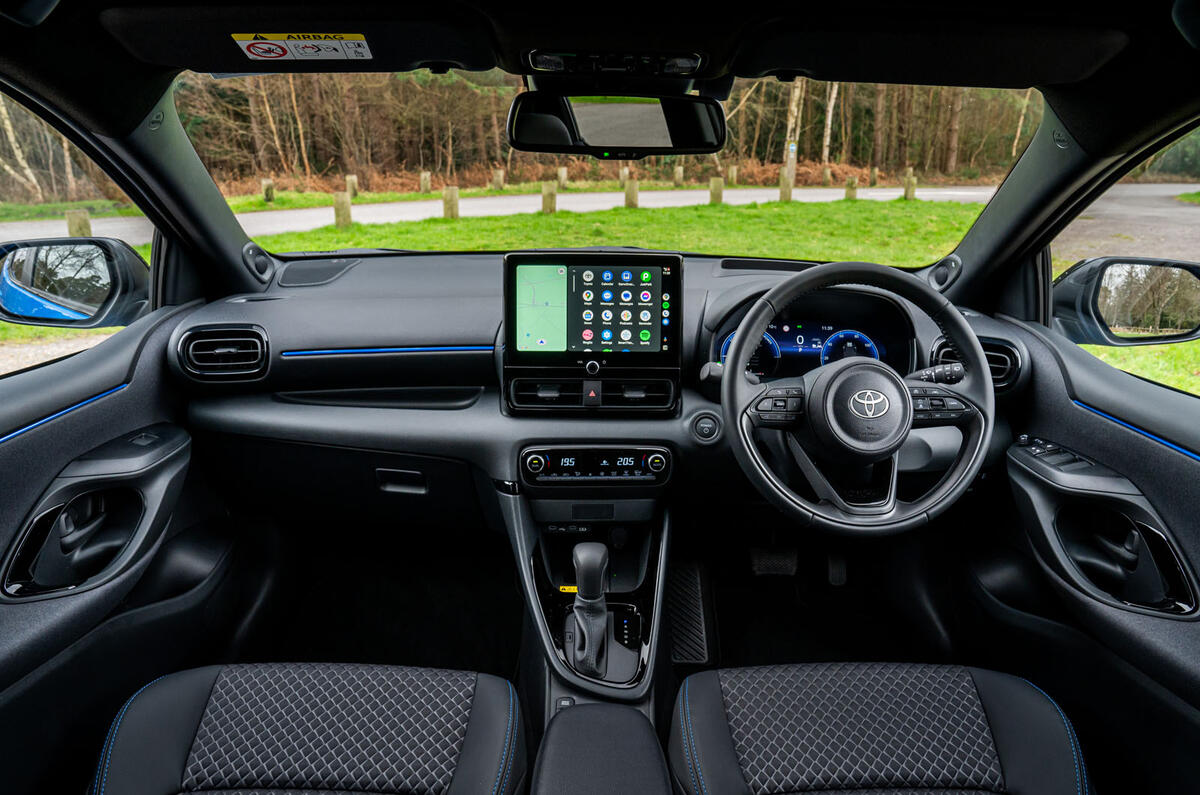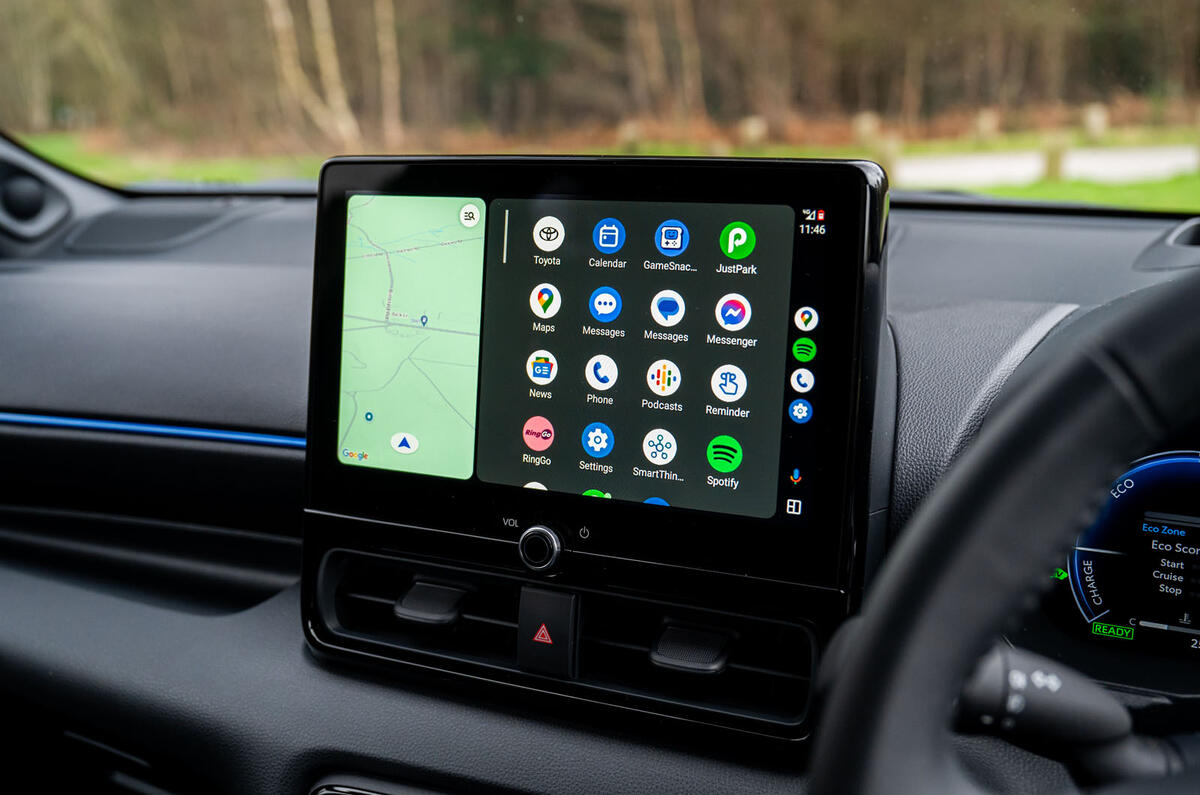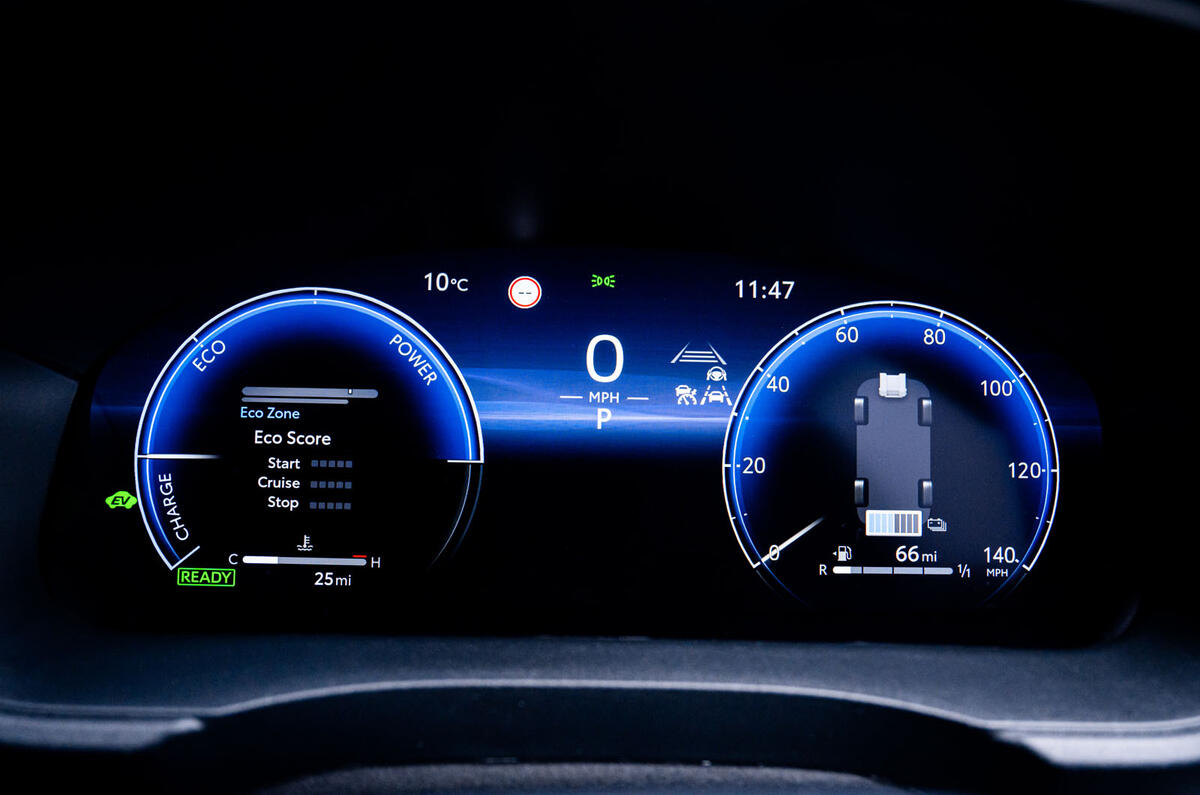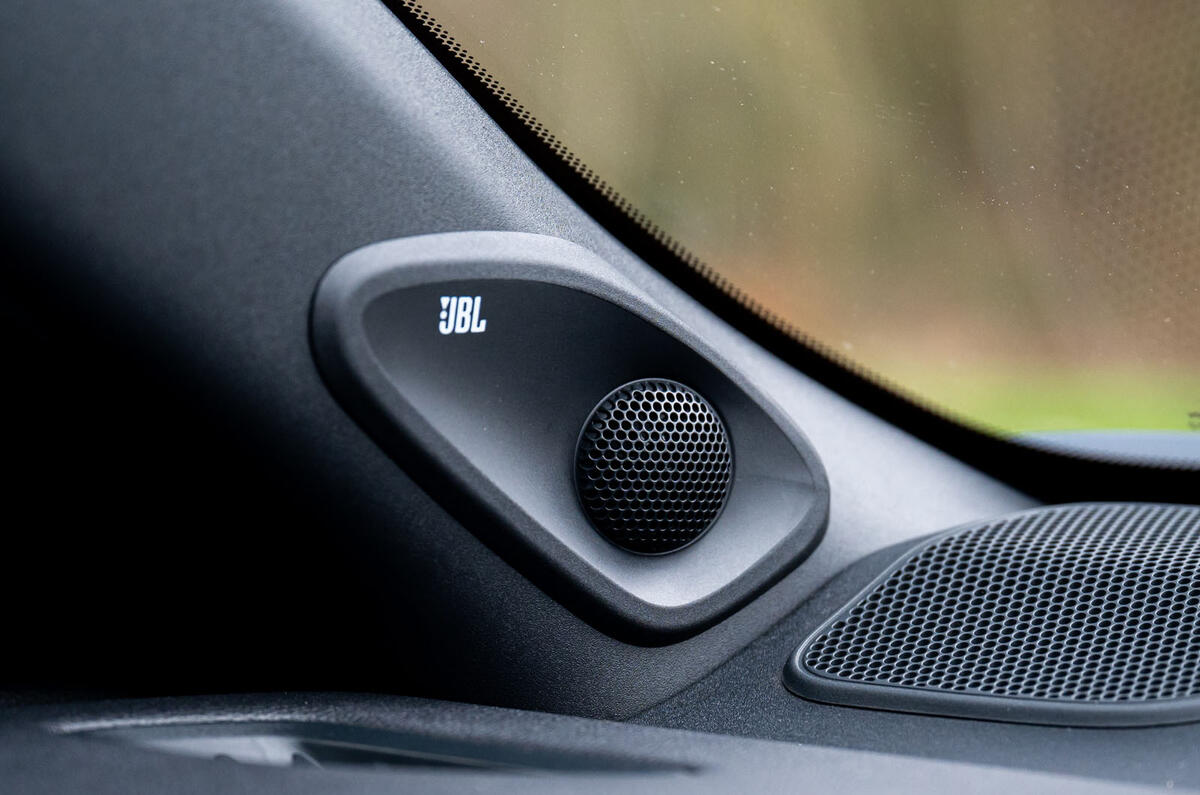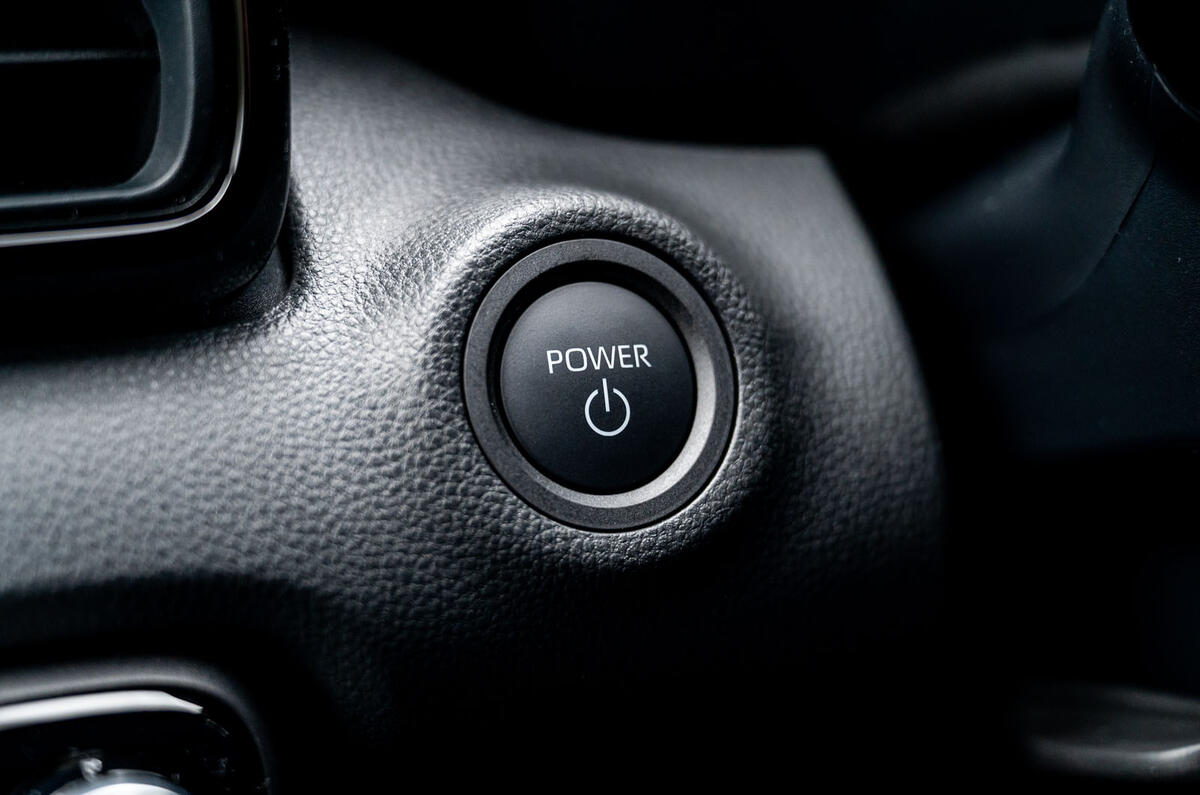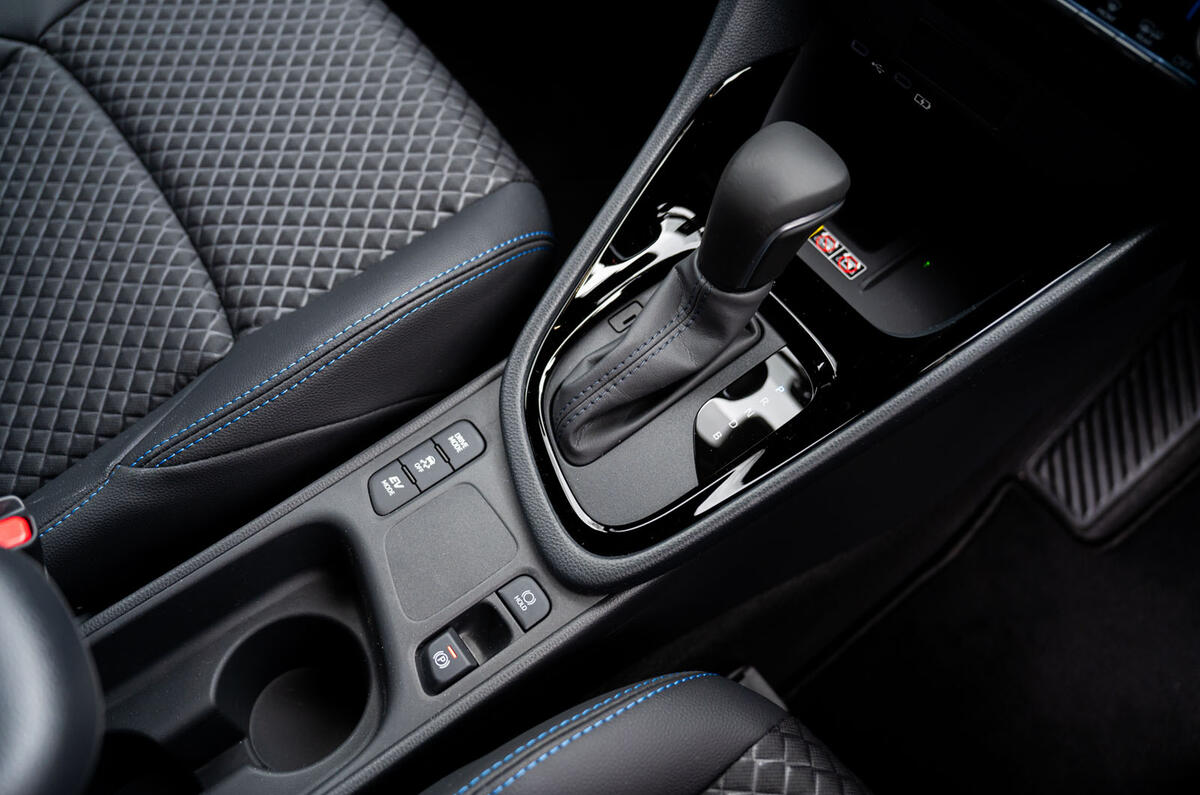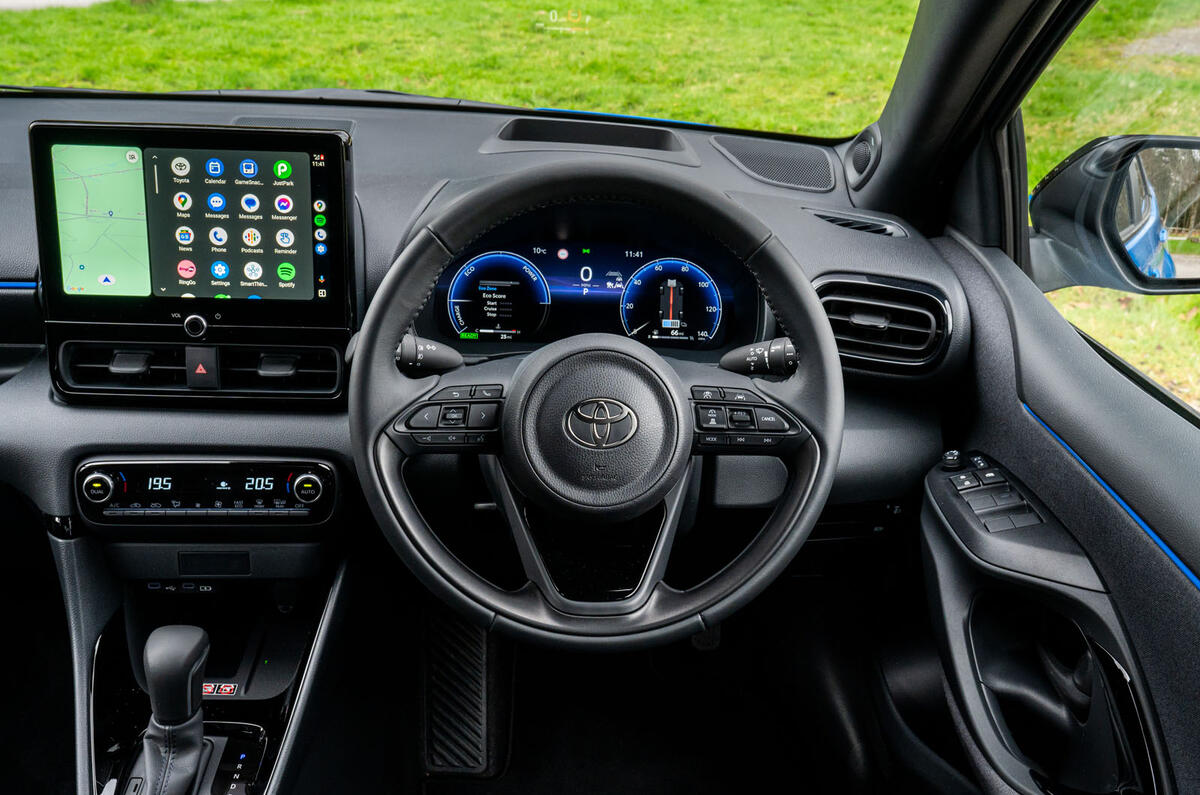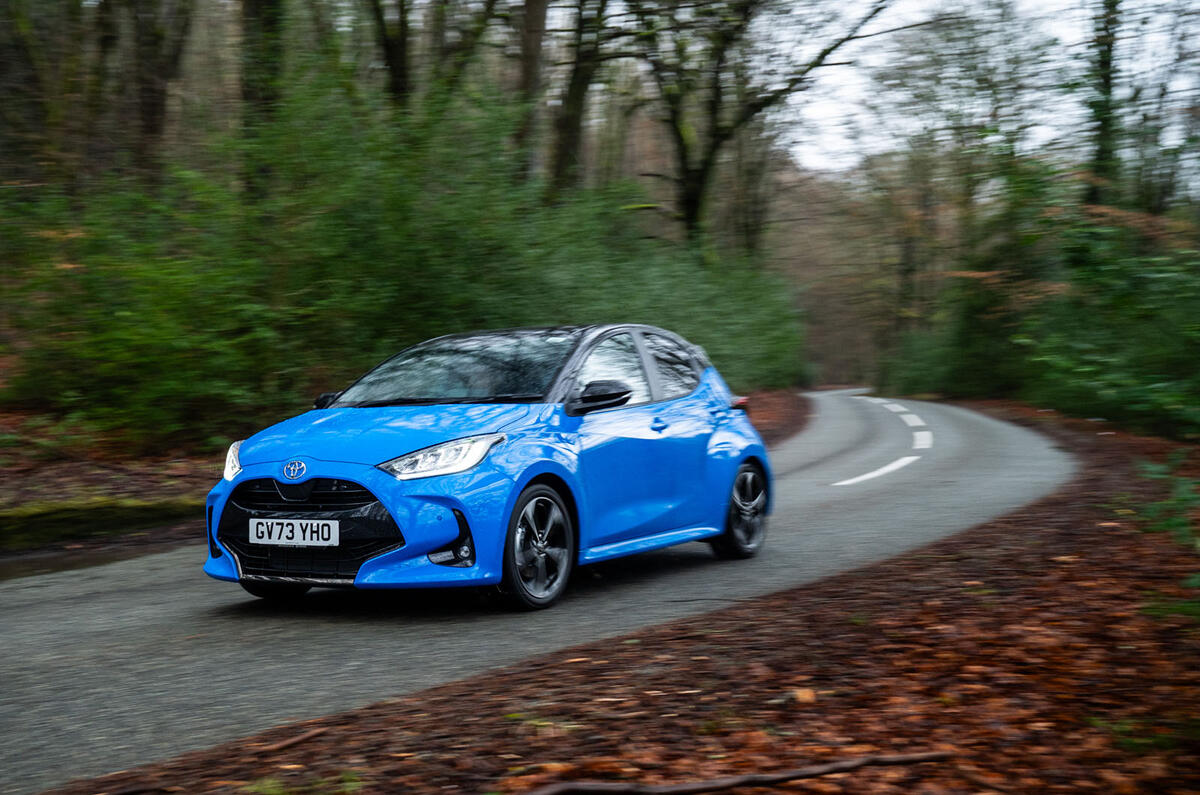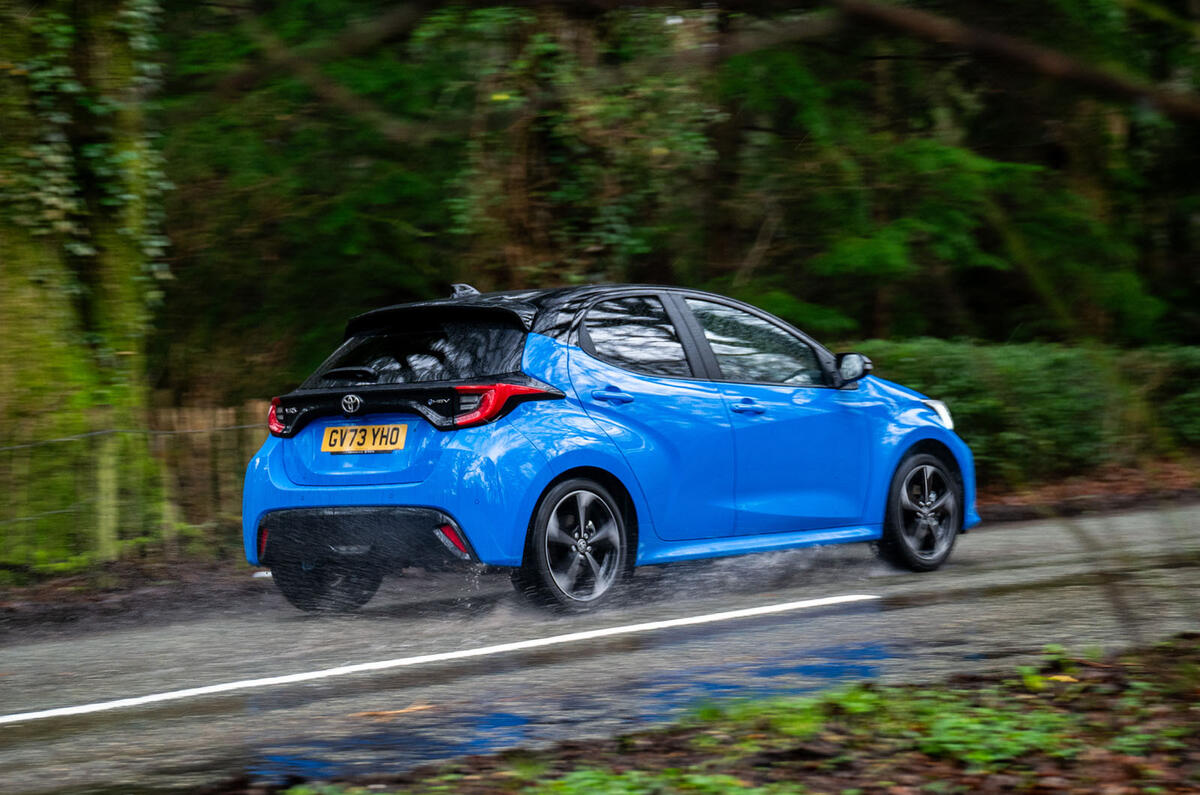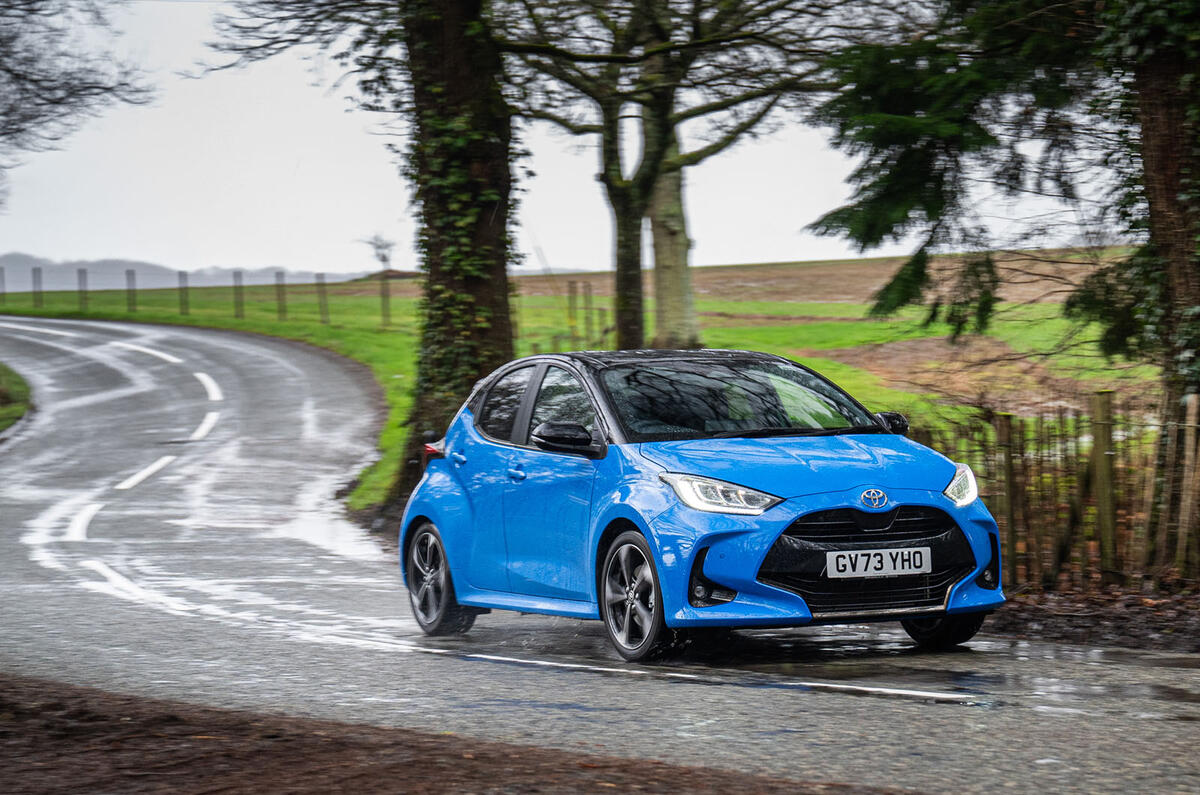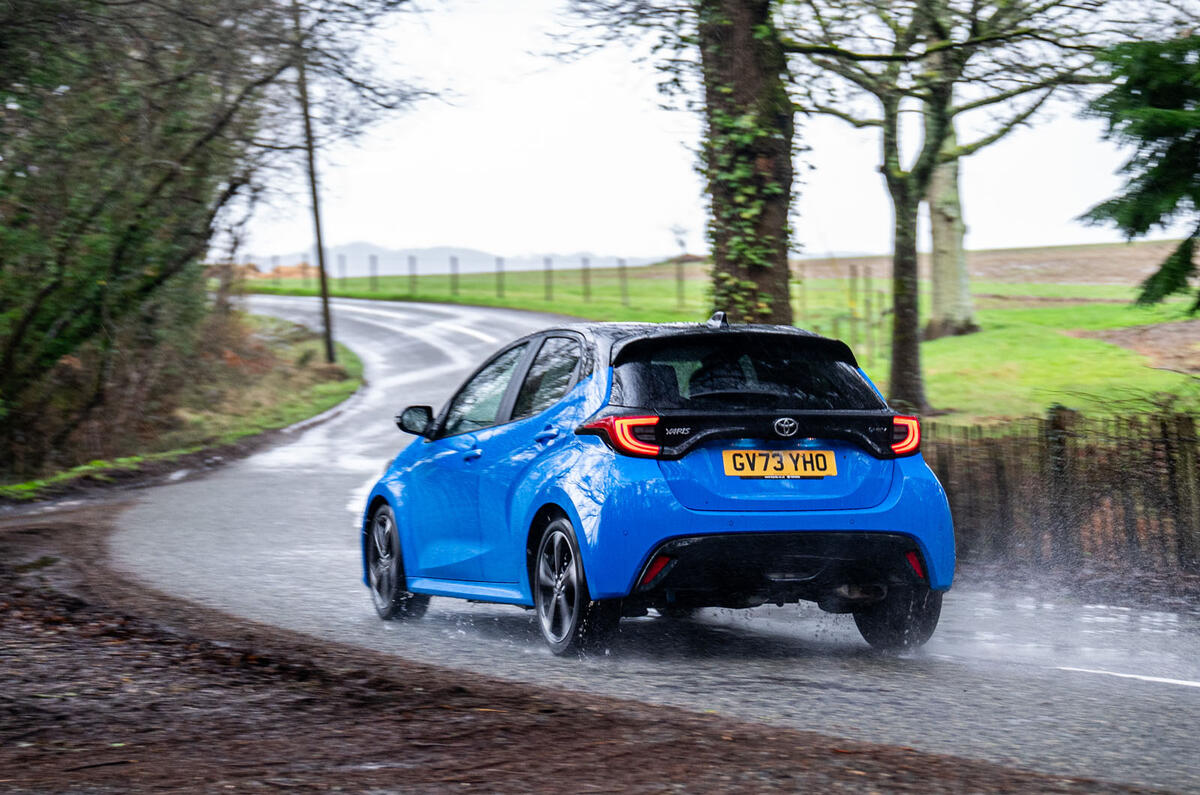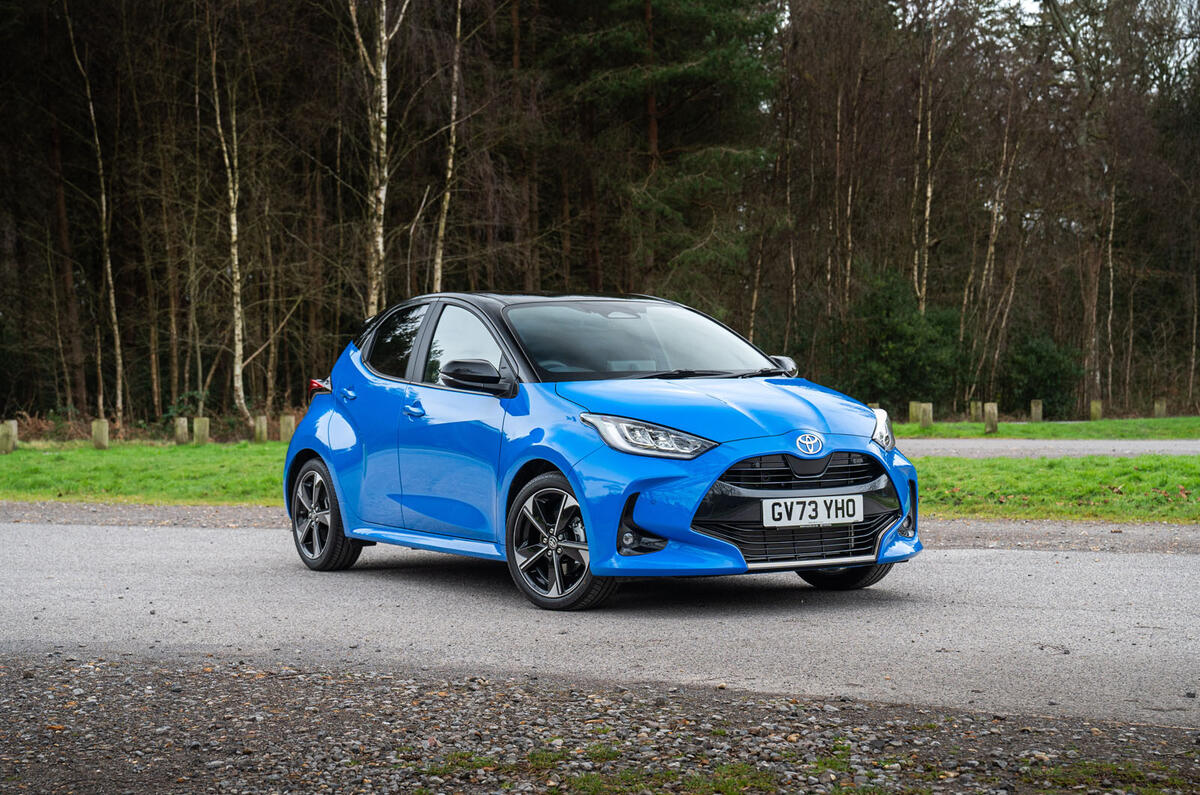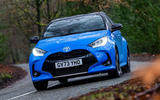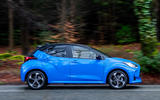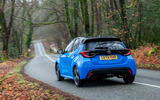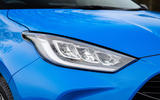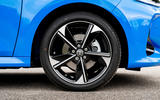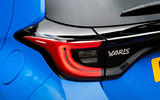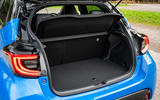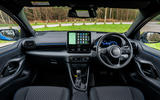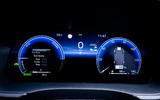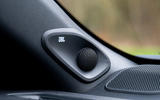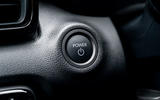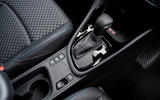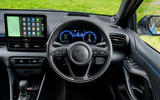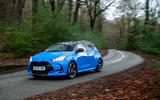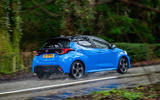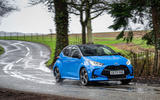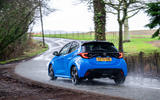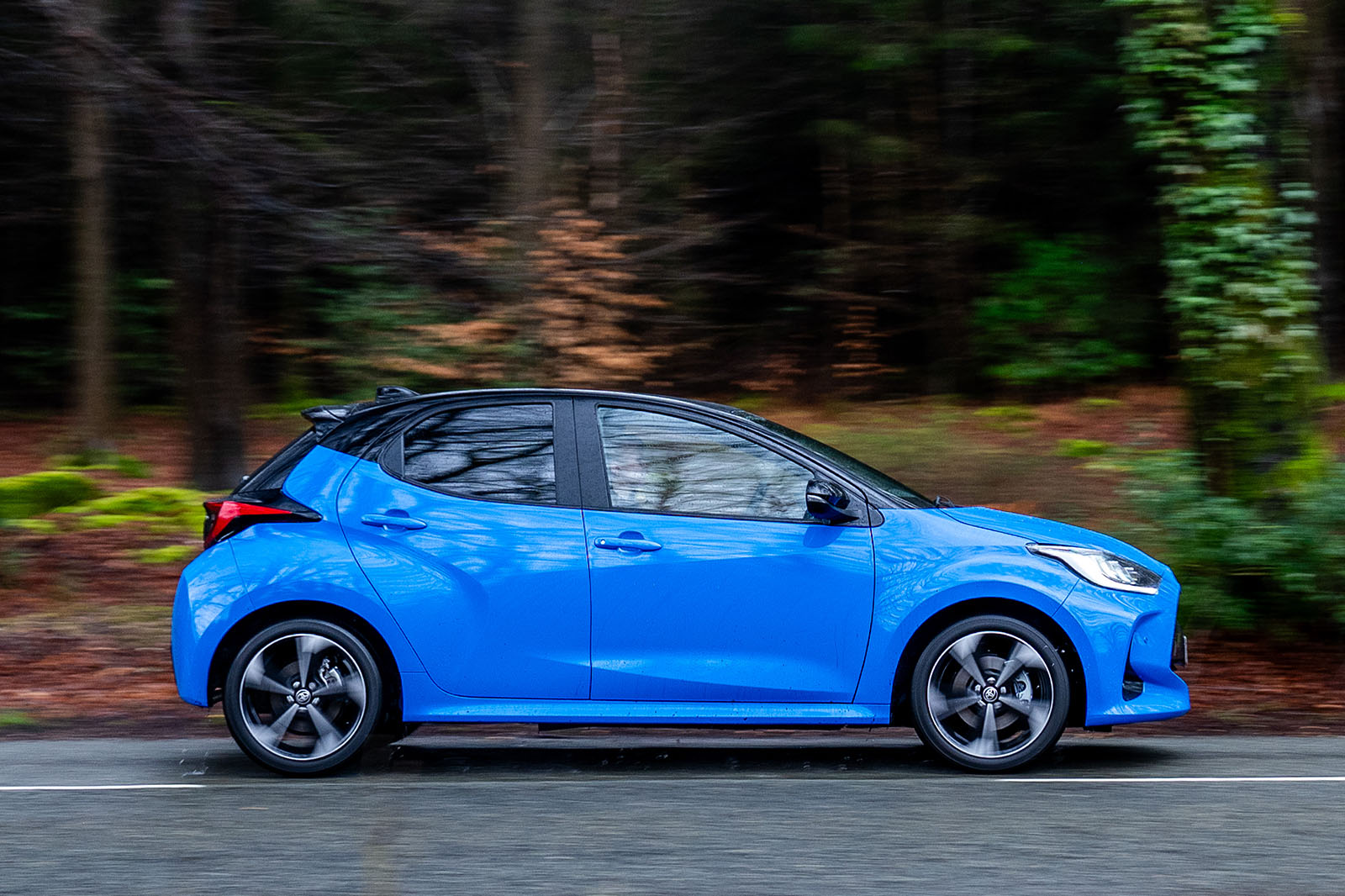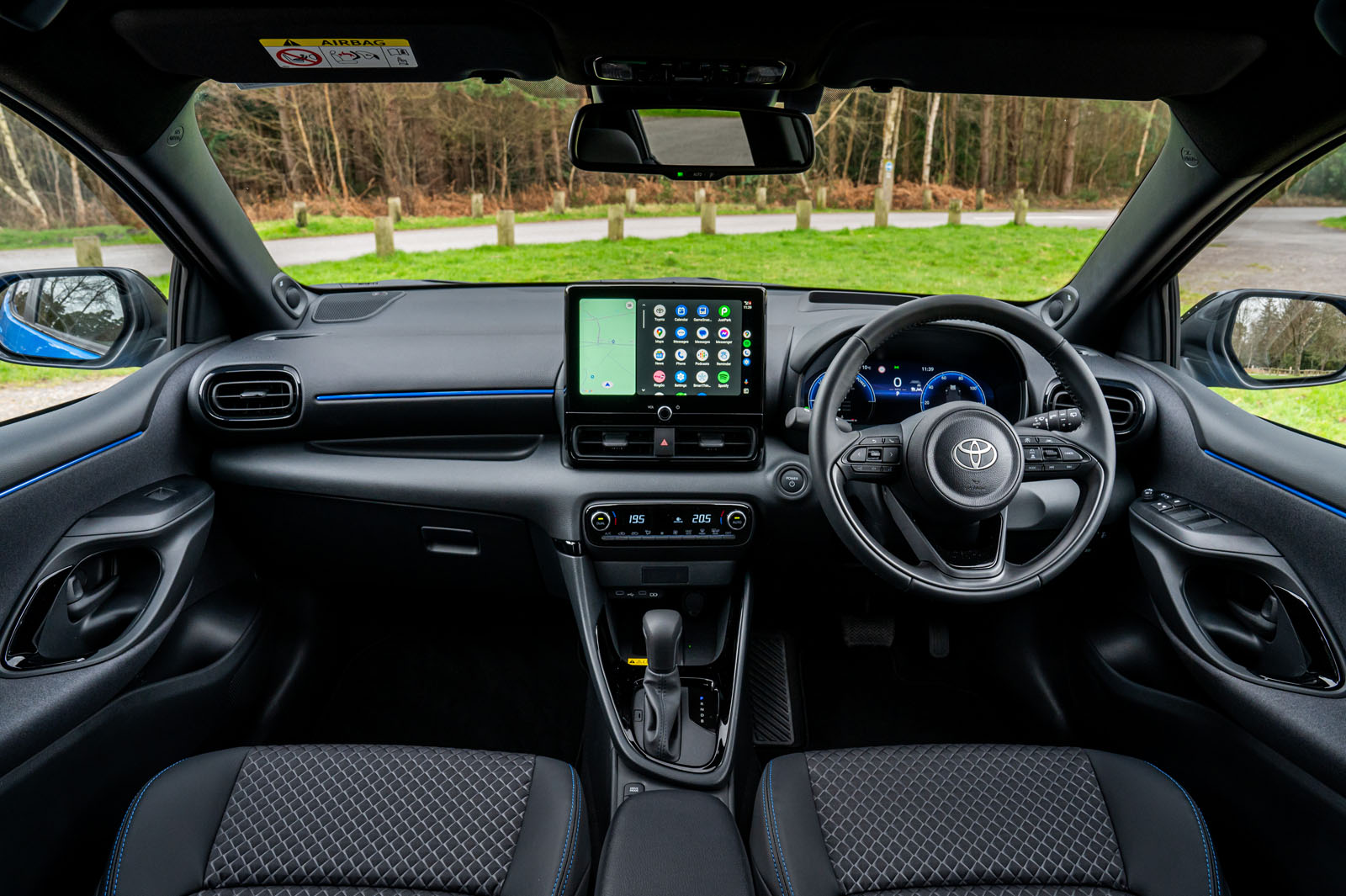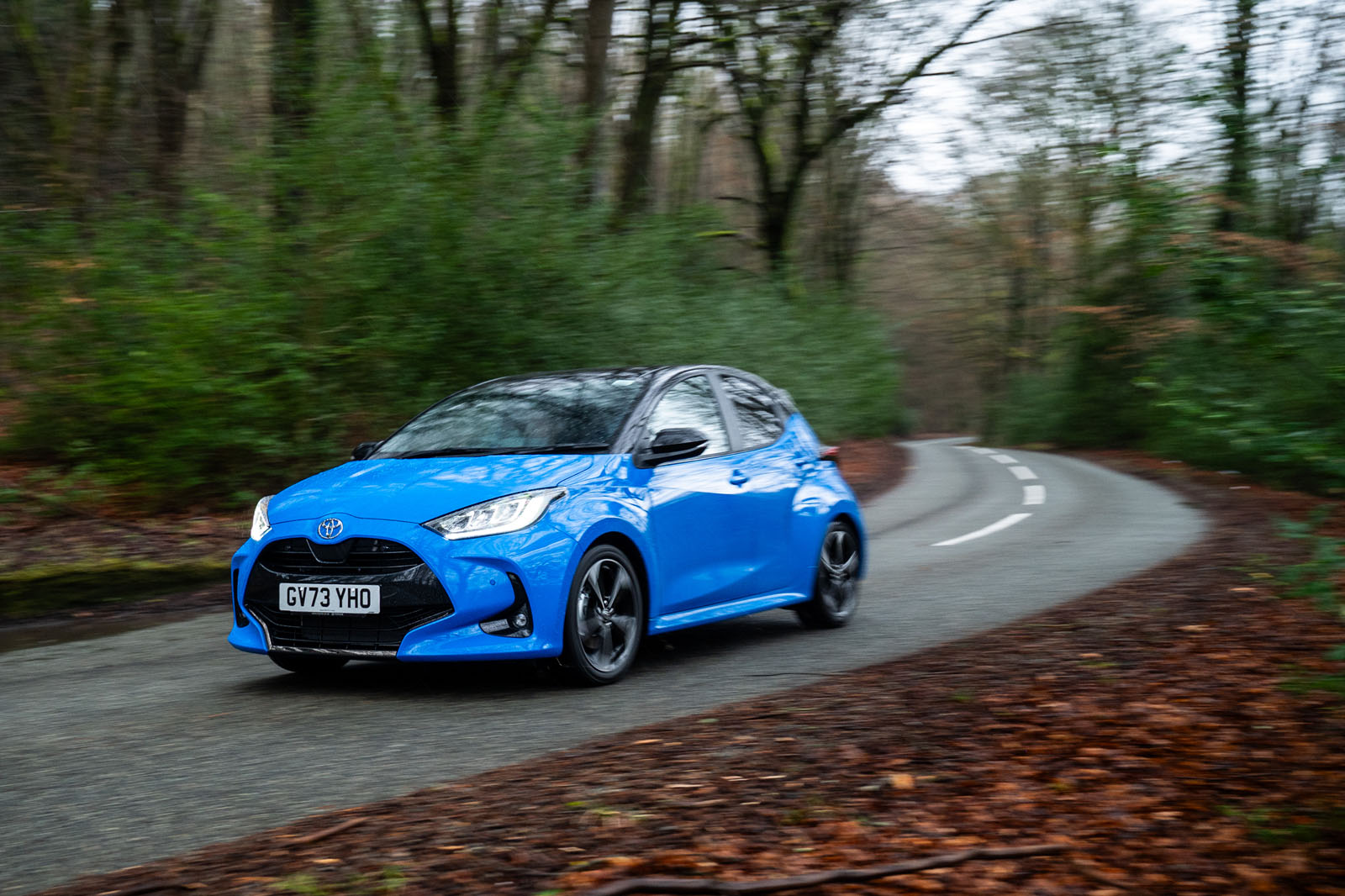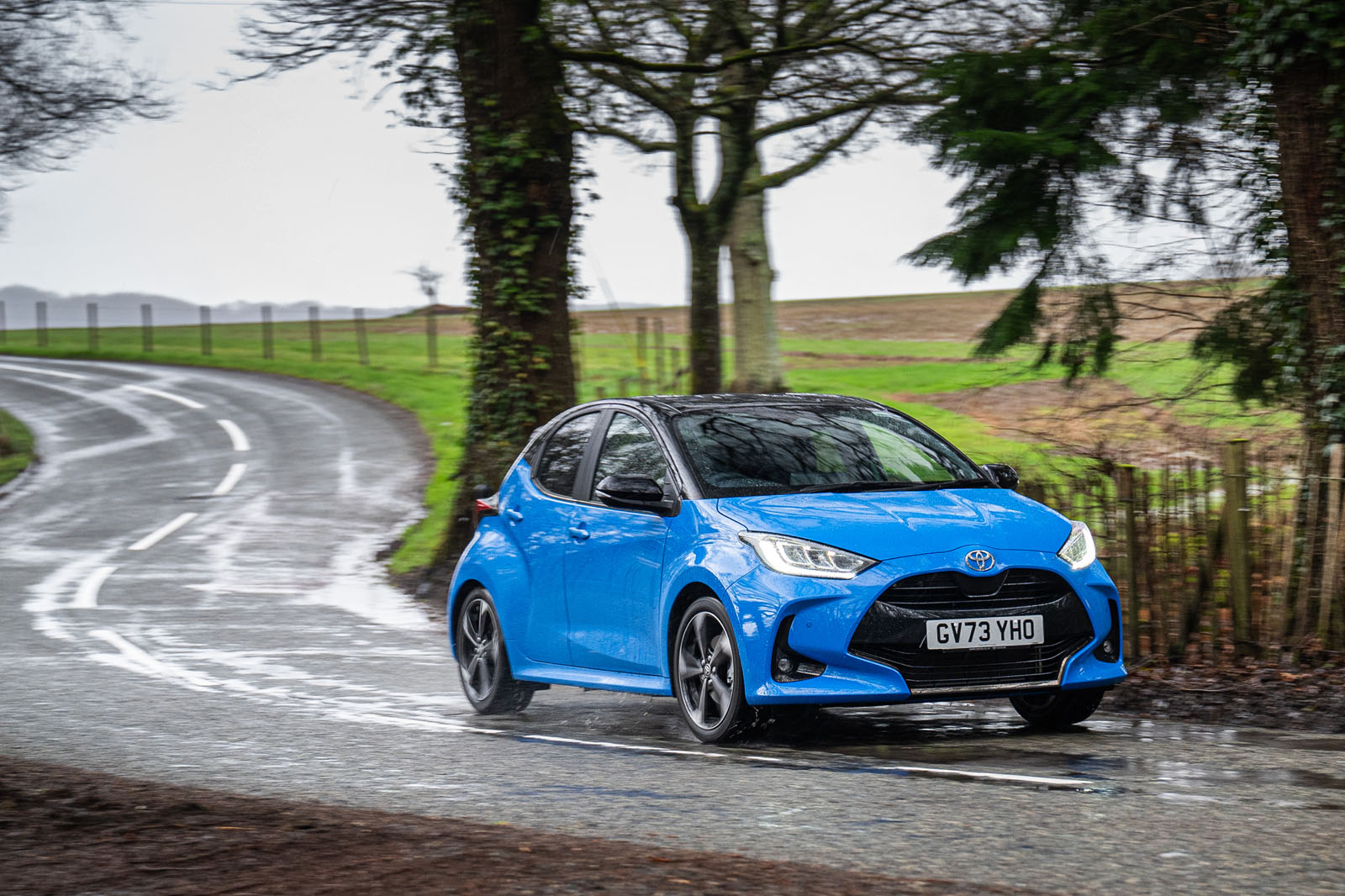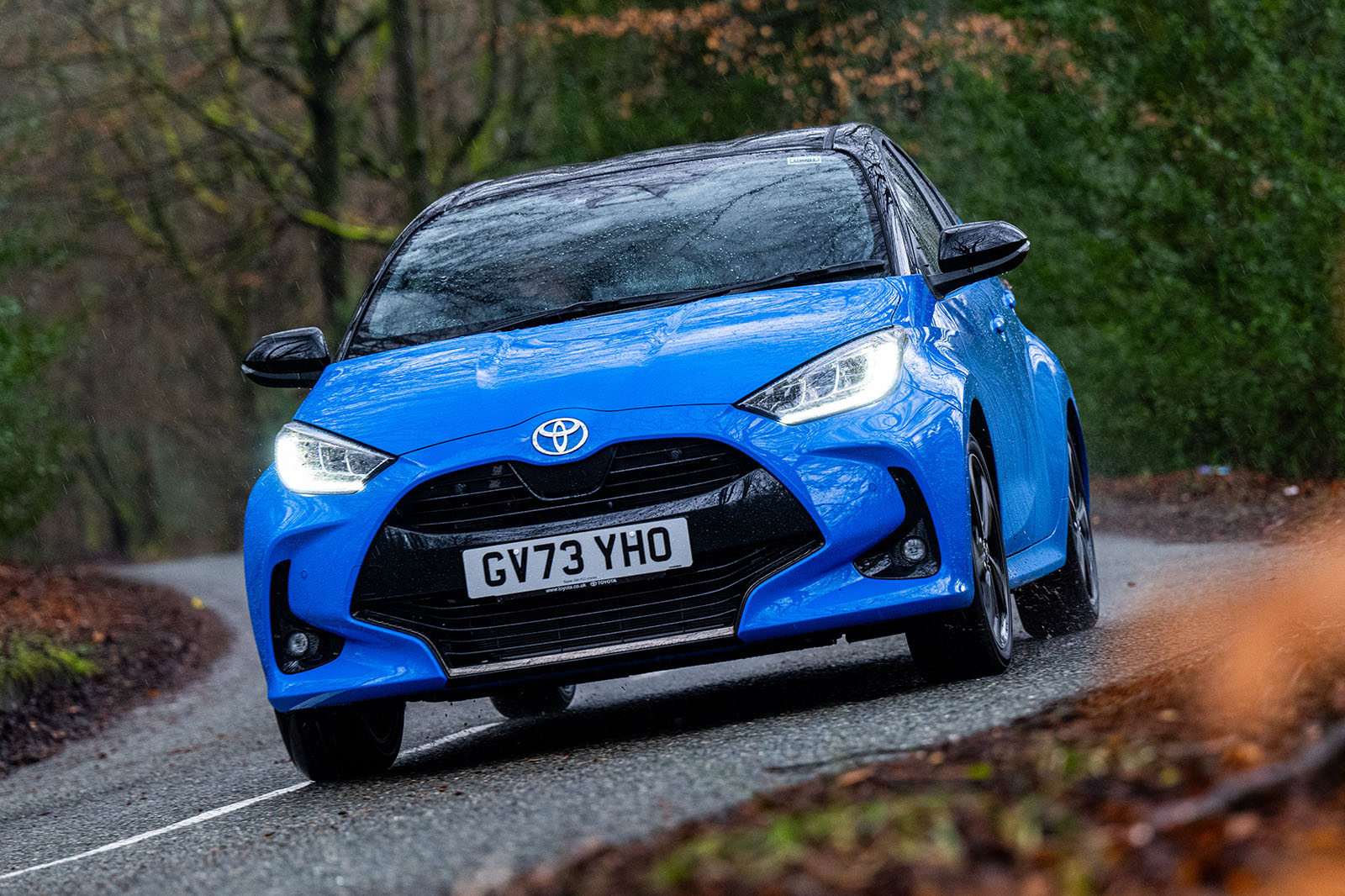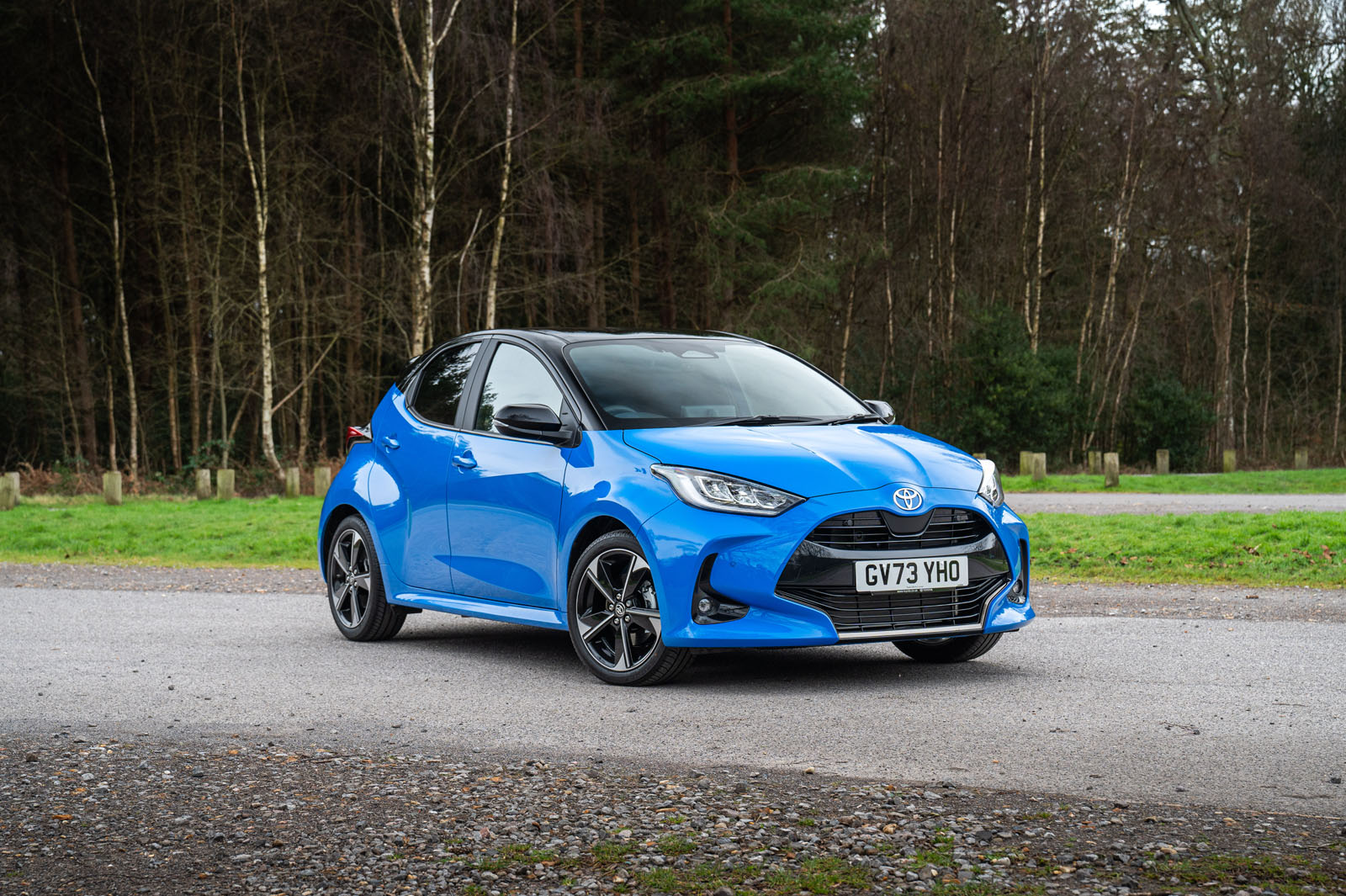The steering feeds into the sense of composure. It isn’t as rawly responsive as some in this class, but it is well matched to the Yaris’s generous roll rates. Toyota claims this supermini is almost 40% more torsionally rigid than its predecessor – chiefly because of the stiff dashboard panel and greater use of spot welding, it says – and on this evidence we’ve little reason to doubt it.
Ultimately, in its standard guise, the Yaris shows more potential as a driver’s supermini than it actually realises. There’s little flair here and the car is impressively settled over a broad range of speeds and quietly satisfying on the right road.
There is also no doubt that numerous rivals offer more in the way of entertainment – not only the Ford Fiesta but also any Peugeot 208, Seat Ibiza or Mazda 2 equipped with three pedals and a conventional engine.
The Yaris’s electronics nevertheless helped to prevent power-on understeer well enough and the inherently neutral handling balance meant decent speed could be carried throughout the lap of our handling circuit.
Heave became an issue at various points, as we would have expected, but in general the Yaris has to be pushed hard before progress becomes ragged. That the engine is such an unenthusiastic performer makes getting to that stage something of an involved endeavour in and of itself.
Things take a downward turn in the GR Sport. It lumps and bumps its way through both the city and on A-roads, and the stiffness is off-putting - not helped by the car’s comparatively large, 18in wheels.
You’d perhaps forgive the level of firmness in a hot hatch, but it's additionally disappointing when there’s little reward from the engine for your pains. It’s also really quite noisy in the cabin. It's certainly fair to say that if you want a Yaris for its comfort, you should avoid the GR Sport.
Ride quality isn't much better in the Premiere Edition. Around town, it's a little more at home, but out on more rural, unkempt roads, its stiffer set-up and 17in wheels mean the ride can become clunky and brittle, especially over consistent imperfections. When riding over sharper edges and potholes, or travelling over lumps and bumps at slower speeds, you do get jostled around more.
Despite this, the latest addition to the Yaris line-up is an enjoyable car to navigate through corners. There is composure to its body control; the steering has good feel to its thanks to its well-metered weight; and if anything, it feels like it wants to be driven at pace, which you can do confidently on smoother roads.
Comfort and isolation
The greatest assets this new Yaris has when it comes to rolling refinement are the two electric motors connected to its planetary gearbox. The next most pivotal element in the context of the car’s road manners is your decision to opt for the smallest wheel size.
With both, the Yaris not only moves off the mark in near silence but can also then slip into all-electric running with commendable frequency during town driving, and all the while it demonstrates an impressively cushioned low-speed ride.
In our experience, the larger wheels fitted to the GR Sport and Premiere Edition rob it of some pliancy, so if you do particularly like the look of higher-specification models, be warned.
Of course, this is no plug-in hybrid, and because the battery can store enough energy for only around four miles of driving at a time, inevitably the three-cylinder engine must awaken. It does gruffly, and the faintly agricultural noise it emits under load is far less easy on the ear than, say, the sound made by the three-cylinder Ecoboost engine in the Fiesta.
It is, however, tempered by the powertrain’s ability to quickly shut down the petrol contingent, as happens under light loads when cruising, or when decelerating, and in general at any point when anything more than moderate acceleration isn’t required.
In general, the Yaris is therefore reasonably easy company. It is perhaps less isolated than we’d like on the motorway, where wind and road roar are ever-present. Opt for a model with larger wheels and road noise is heightened further, especially on rurual back roads, where road surfaces can be of poorer quality.



